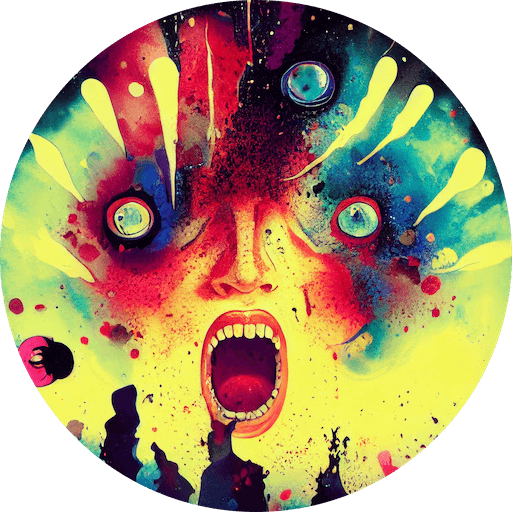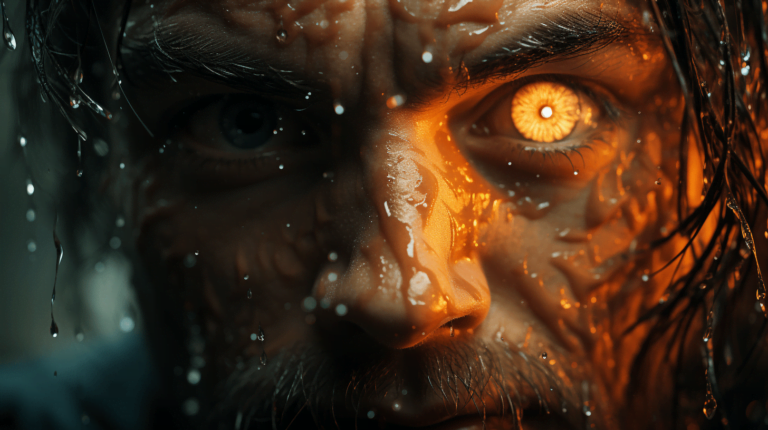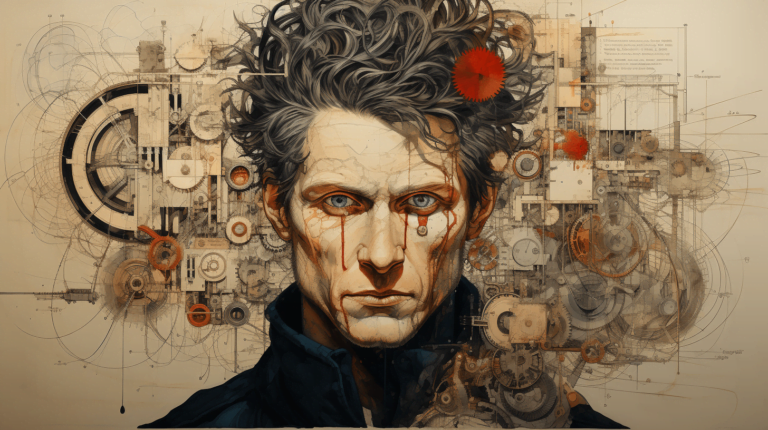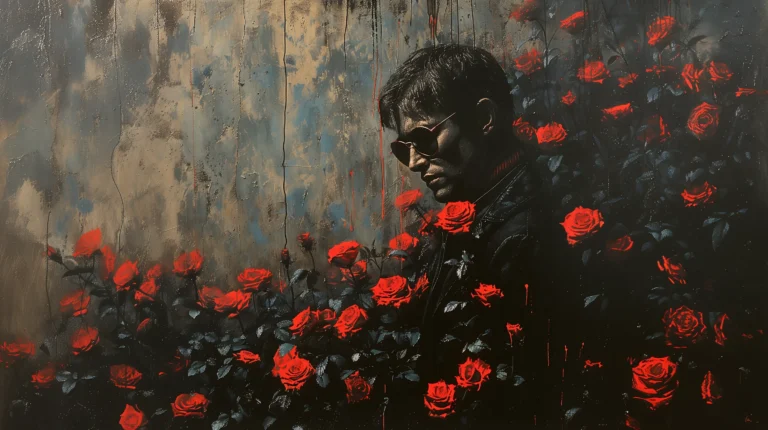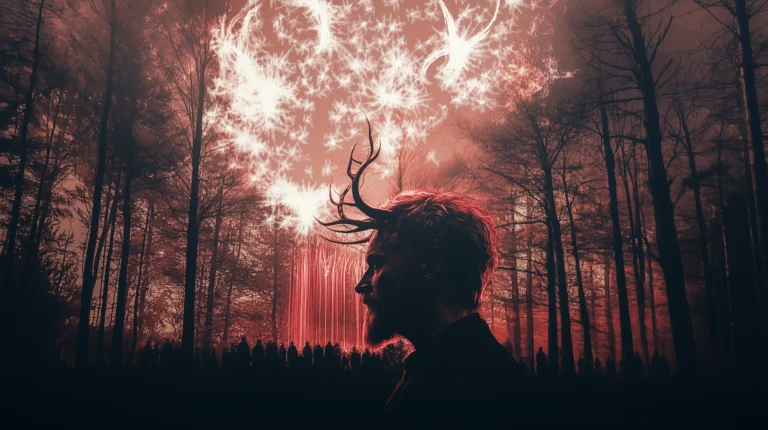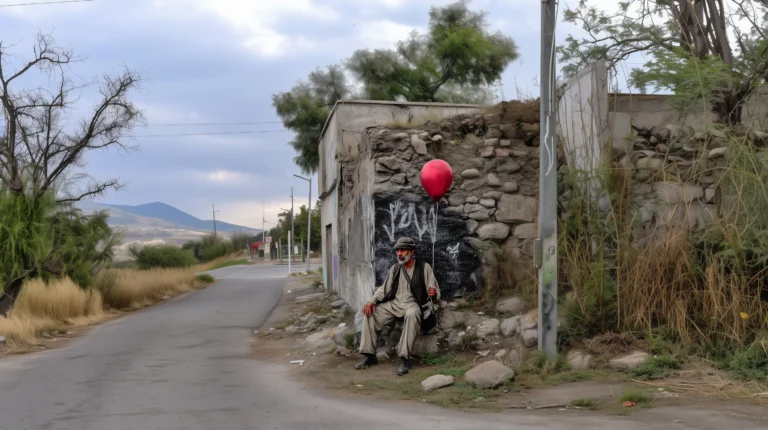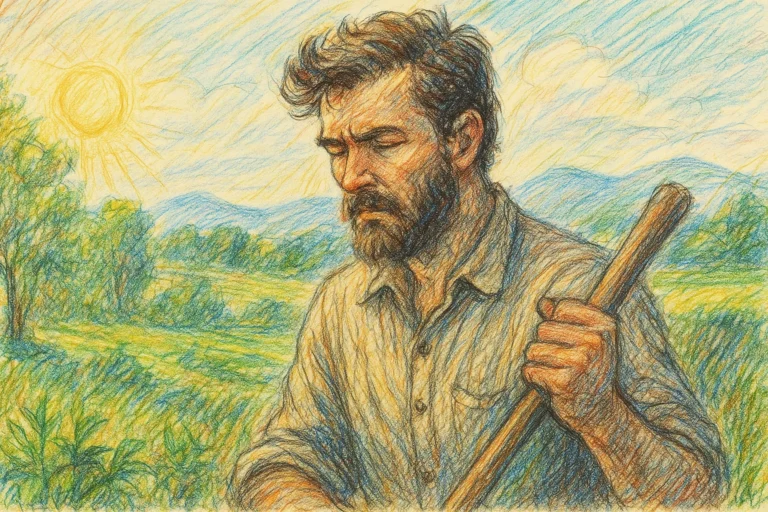In the Grip of Thoughts: A Story
A man woke up from his bed and scratched his eyes. His head was blank and silent, but he knew the thoughts would start soon. The trail of these bastard thoughts would start soon.
What is all of this? Who am I? I don’t even know who I am! he thought. Where do I come from? No idea. Where am I going? Half of my life, I was unconscious, going wherever events pushed me, like a ball in a snooker game.
What is this existence all about? The man suddenly realized the thoughts were coming, left and right, up and down, yin and yang.
He suddenly quieted his mind and went to drink warm water. He drank the warm water on an empty stomach and with an empty head. He knew if he drank coffee straight away, it would help manage the thoughts more easily, but he wasn’t going to take the easy way.
He went to his balcony in the cold chill, took a red blanket with him, and started meditating. The same mundane thoughts, which had no value in his life, came and passed.
Most of the time, there was a choice for him to take a side in the thoughts, to side with either the angel or the demon. If he sided with the angel, it created turmoil in him, and the demon within started eating him from the inside, complaining, Why did you sacrifice your individuality, your authentic self?
For about ten minutes, this process continued—the struggle of left and right—until the man stopped taking sides and just let them pass away.
Now, the man was just observing the thoughts like piranha fish trying to get his attention, wanting him to select a side. But the man knew that if he selected any one of them, whether pretty or ugly, in the end, the beautiful mermaid would grow teeth and drag him into the deep waters of the unconscious.
But am I afraid of the deep waters of the subconscious? he asked himself as he began contemplating a glimpse of his life. He took a quick dive into the deep waters and came out to start observing the thoughts again.
The turmoil within him began bubbling up, and with each inhale, he gathered the turmoil, and with a big, powerful exhale, he vomited it out—wherever it came from. Now he sat in blissful calm, quiet.
After a few minutes, he opened his eyes, looked around, looked at the sky with sadness, and realized, What am I looking at? Who lives in the sky? No one lives in the sky.
He went inside, made his coffee, and started sipping it. A question came to his mind, Is this my reincarnation? He brushed off the thought, saying, Who gives a fuck? But the reality is, this fucking existence is miserable.
The second question came to his mind: What to do about it? He just wanted to have a good experience of life.
Another question came to his mind: Will I come back again to this material world? He mumbled, Fuck no. I just want to have a good experience of life, whatever fucking time is left. He finished his coffee and got ready to go to the gym.
He went to the gym and started doing his daily exercises, mostly starting with stretches, breath work, and ending with weight lifting.
Sometimes he observed people in the gym, but he knew that observing people was the same as observing thoughts—they come and go. But if you take a side, the rabbit hole begins.
Suddenly, his eyes started moving around the gym. Humans were doing what they do best—trying to prove to others, I am worthy, I am better, I am doing something great, I am good, please love me.
In reality, all of them were saying, Please accept us. If you don’t, I will prove to you I am better than you, and while putting you down, I will suck all the energy out of you.
Most humans are like vampires—the only way they feel good about themselves is by comparing themselves to others. If they can diminish the light in another person’s eyes and suck out that energy by convincing others that they are better than them, they feel good about themselves.
One can easily spot these kinds of people: one kind starves for your acceptance, and another kind wants to suck the energy out of you to feel good. Both kinds are disgusting because they don’t know how to cultivate this light within.
The man suddenly realized he was in the rabbit hole of thoughts again. He came out of it, and now the focus turned on him—what kind of person was he? He didn’t choose either devil or angel, but a flickering thought passed by, Shouldn’t you do the same with others?
He had enough of this rabbit hole and went into an observer state, but this time, without judging—like a zombie. He finished his exercise, came back home, took a cold shower, and left to go to the office.
He walked to the train station. The people were in a rush, walking fast, angry faces, sad faces—all kinds of faces except content ones. Forget about happy faces; not even a content face.
He went inside the train station. The train came; it was rush hour, and it seemed like a purge—everyone seemed like they were about to burst, burst into tears, or start eating other people’s flesh.
The hate, the pain, the sorrow on people’s faces—the man knew this was the same energy that fueled the wheel of the Tao. If this energy disappeared, the game would stop.
The man saw people scrolling through their mobile phones, which were like oil poured on the fire of emotions—hate, envy, anything you could think of that made people more anxious, crazy, hateful. All of this was on their screens, fueling the inner turmoil of people, so the wheel kept moving.
Suddenly, the man started observing a woman who was reading something in the newspaper, and suddenly, her facial expression became angry.
The train stopped at a station, and more people started coming inside. The woman looked at those people, and her face grew angrier as if she wanted to kill them.
With a smirk and by making her body more stiff, she continued reading the newspaper, fueling her turmoil so she could be good oil in the engine.
The man kept observing the people on the train. He asked himself, Am I a zombie, or are they? Sometimes the thought came to his mind, Is it good to live like them, like robots, with no clue, just being used and abused, and in return, doing the same to others? The same chain of use and abuse becomes generational trauma.
Suddenly, the train stopped at another station, and a woman with three kids came inside. The woman was tall and strong, carrying one child in her arms, one in a pushchair, and another, around seven years old, trying to be a protective figure for the mother.
The train started moving. Now, the woman, though strong, was struggling to stand with the child, and the child in the pushchair started crying. The seven-year-old, with some shopping in his hands, started looking around with hope.
No one offered the woman a seat. The man started thinking, Should I tell people to offer her a seat? What if she says she doesn’t want it? All this rumbling, mumbling in his mind kept going on, and the idea came to his mind to not select left or right, just observe.
As he was observing, he saw the woman struggling, men sitting down busy with their mobiles like zombies, women reading newspapers and getting more and more upset.
The man kept observing, thinking, Should I say something or not? Then his stop came, and he left the train, thinking, Should we even exist?
But today, the man found the hell of religion—the hell is not something that we go to after death; the hell is here, on this earth, right here, right now. We are living in hell.
But as cycles continue, he knows he will find hope again. He will find another reason to trust humanity, and in the end, the courage to trust himself. He will find yet another reason to live one more day on this planet.
A question arises in his mind: Is hope the real problem of humanity? With this question, he continued his day with a smile, as the virus of hope had already infected him, one more time, one more day, one more go. Until next time.
Lost in thought,
a man adrift,
in silent waves,
his mind does shift.
Questions rise,
no answers near,
a life of doubt,
and quiet fear.
Faces cold,
in rushing crowds,
no joy in sight,
no laughter loud.
The world a maze,
of broken dreams,
he walks alone,
or so it seems.
Yet deep inside,
a spark of pain,
the endless search,
for peace in vain.
But hope, it clings,
a fragile thread,
one more day,
he lifts his head.
